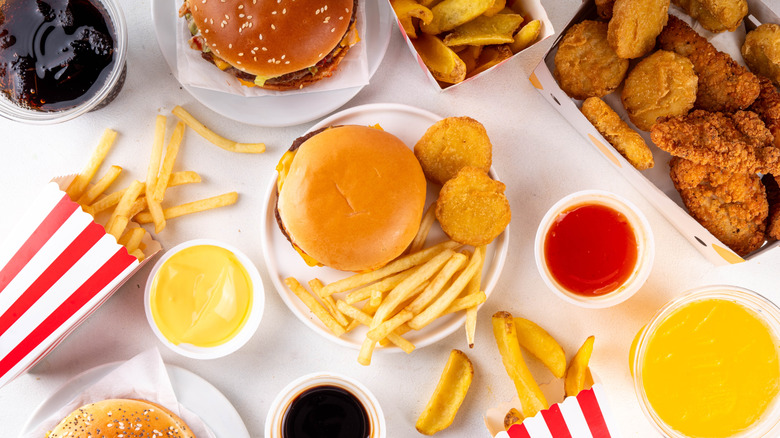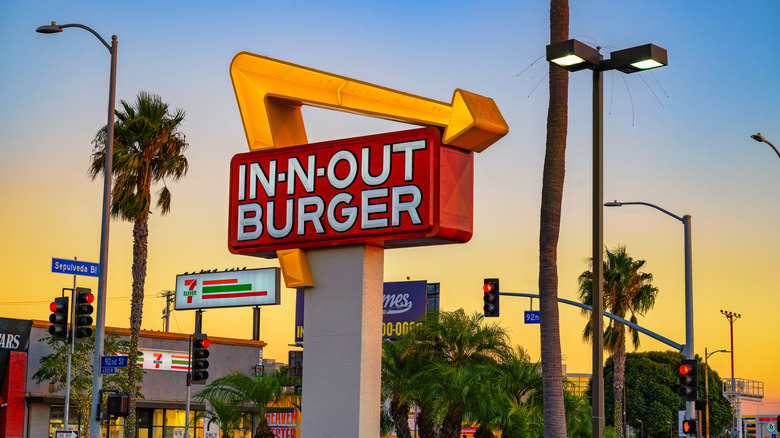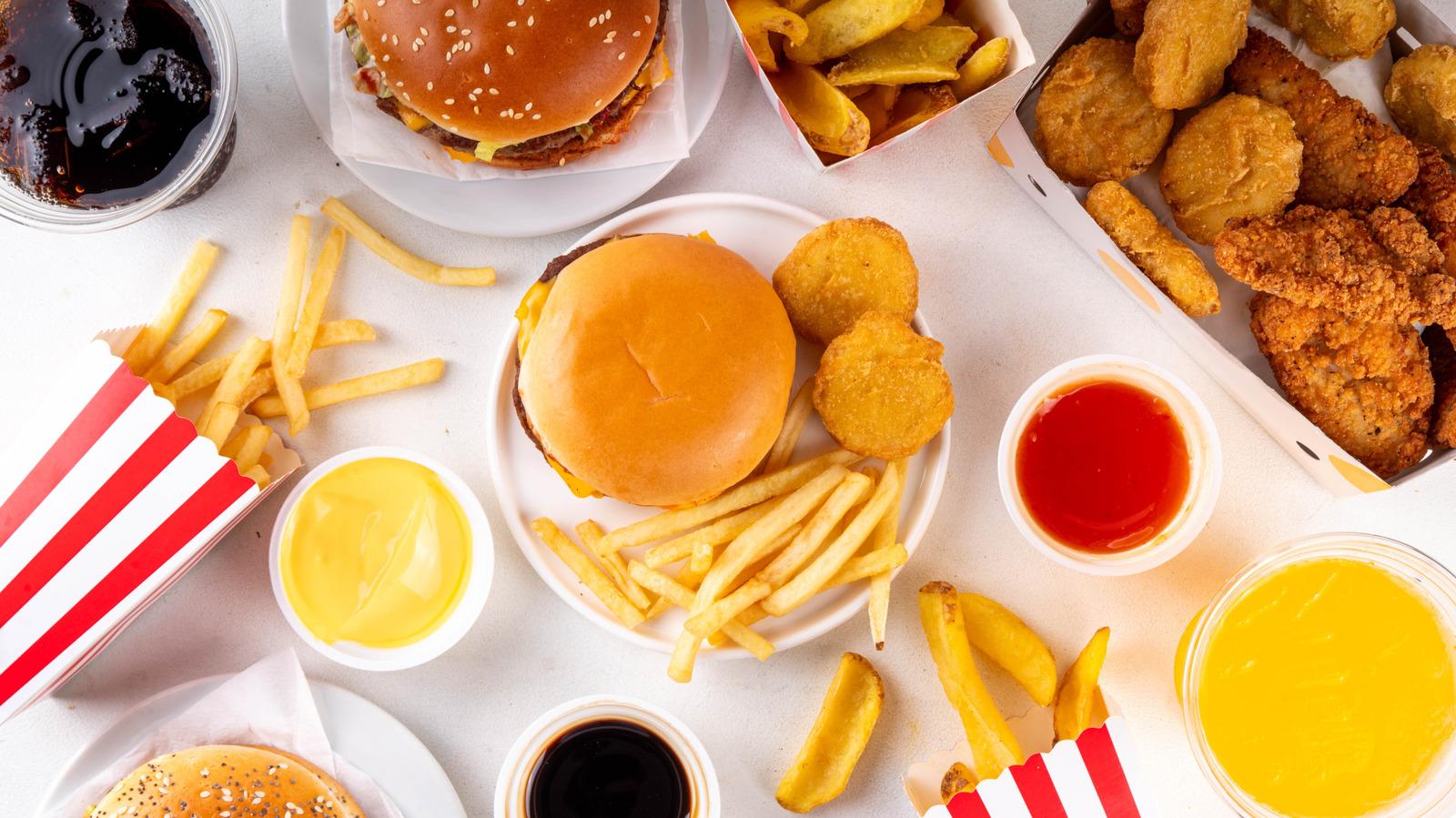
Rimma Bondarenko/Shutterstock
It's surprising that California, a state commonly associated with health-conscious hippy culture, juice cleanses, and organic produce, gave birth to the modern fast food industry, but the data doesn't lie. The Golden State is where some of the most iconic fast food restaurants got their start. McDonald's, with its famed golden arches, rose from humble beginnings in the city of San Bernardino. Jack in the Box has roots in San Diego, and Taco Bell originated in Downey, California in the 1960s. California also served as an incubator of popular regional fast food chains like In-N-Out and the SoCal chili cheeseburger phenomenon, Original Tommy's. What is it exactly about sunny California that makes it the ancestral home of fast food icons like Panda Express, Hot Dog On A Stick, Weinerschnitzel, and Carl's Jr.?
It might be as simple as the weather. Fast food stands were quite common across the United States as early as the 1920s. Quick stop stands serving handheld fare outdoors often operated in warmer weather and would close during the winter months. Southern California's year-round sunny climate might just have made it the ideal state for fledgling fast food joints to get their start and operate year-round. California also embraced automobile culture, making drive-thru dining options a preferred choice for hungry travelers.
Fast food's uncertain future in the Golden State

Miroslav_1/Getty Images
Though many fast food restaurants originated in California, there is one region that appears to be the epicenter of it all: the Inland Empire. Over 4 million people reside in the area, and the population appears to be growing because of the region's affordable housing. Californians shell out hefty sums on housing, groceries and energy, and many flock to lower-cost areas like the Inland Empire. Because prices seem fair, this may be why so many fast food chains began there. Yet, it's possible even areas like California's Inland Empire may not remain a hub for fast food much longer.
In 2024, a polarizing California fast food law creating a council to regulate fast food and fast casual restaurants in the state was put on hold. The law would give the council the ability to mandate a minimum hourly wage of $22. Though a higher wage would improve living conditions for fast food workers, organizations like the Save Local Restaurants Coalition maintained that it would be catastrophic for operating costs, which are already a challenge in California. In August 2025, the LA Times reported that the owner of the In-N-Out franchise was leaving California for the cheaper state of Tennessee. "There's a lot of great things about California, but raising a family is not easy here," In-N-Out owner Lynsi Snyder told the newspaper. "Doing business is not easy here."



